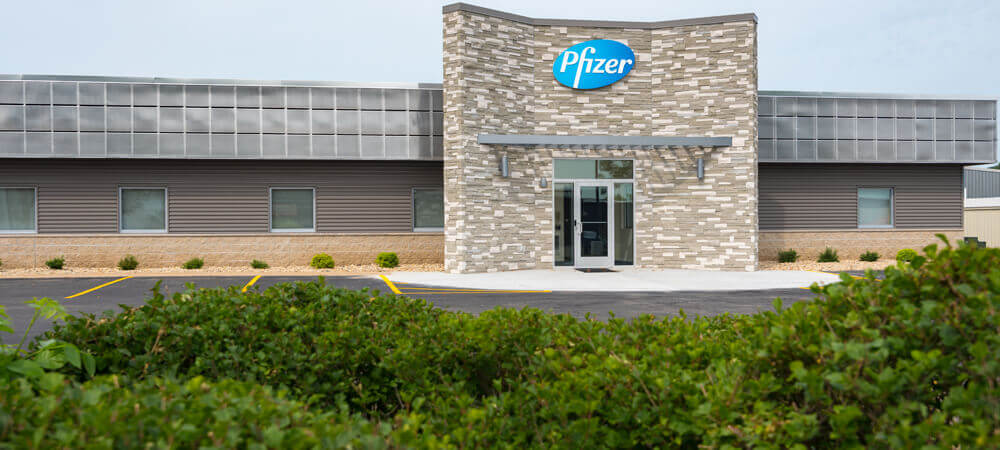UK authorizes Pfizer coronavirus vaccine for emergency use
UK authorizes Pfizer coronavirus vaccine for emergency use

NEW DELHI: Pfizer and BioNTech SE have announced today that the Medicines & Healthcare Products Regulatory Agency (MHRA) in the U.K. has granted a temporary authorization for emergency use for their COVID-19 mRNA vaccine , against COVID-19.
This constitutes the first Emergency Use Authorization following a worldwide Phase 3 trial of a vaccine to help fight the pandemic. Pfizer and BioNTech are anticipating further regulatory decisions across the globe in the coming days and weeks and are ready to deliver vaccine doses following potential regulatory authorizations or approvals. The distribution of the vaccine in the U.K. will be prioritized according to the populations identified in guidance from the Joint Committee on Vaccination and Immunisation (JCVI).
Todays Emergency Use Authorization in the U.K. marks a historic moment in the fight against COVID-19. This authorization is a goal we have been working toward since we first declared that science will win, and we applaud the MHRA for their ability to conduct a careful assessment and take timely action to help protect the people of the U.K., said Albert Bourla, Chairman and Chief Executive Officer, Pfizer.
As we anticipate further authorizations and approvals, we are focused on moving with the same level of urgency to safely supply a high-quality vaccine around the world. With thousands of people becoming infected, every day matters in the collective race to end this devastating pandemic.
The Emergency Use Authorization in the U.K. will mark the first time citizens outside of the trials will have the opportunity to be immunized against COVID-19, said Ugur Sahin, M.D., CEO and Co-founder of BioNTech.
We believe that the roll-out of the vaccination program in the U.K. will reduce the number of people in the high-risk population being hospitalized. Our aim is to bring a safe and effective vaccine upon approval to the people who need it. The data submitted to regulatory agencies around the world are the result of a scientifically rigorous and highly ethical research and development program,” he added.
The MHRAs decision is based on a rolling submission, including data from the Phase 3 clinical study, which demonstrated a vaccine efficacy rate of 95 per centin participants without prior SARS-CoV-2 infection (first primary objective) and also in participants with and without prior SARS-CoV-2 infection (second primary objective), in each case measured from 7 days after the second dose.
The first primary objective analysis is based on 170 cases of COVID-19, as specified in the study protocol. Efficacy was consistent across age, gender, race and ethnicity demographics, with an observed efficacy in adults age 65 and over of more than 94%.
In the trial, BNT162b2 was generally well tolerated with no serious safety concerns reported by the Data Monitoring Committee to date. Todays decision also is based on a review of Pfizers and BioNTechs Chemistry, Manufacturing and Control (CMC) data for BNT162b2.
In July 2020, Pfizer and BioNTech announced an agreement with the U.K. to supply 30 million doses of the BNT162b2 mRNA-based vaccine, once authorized for emergency use. That agreement was increased to 40 million doses in early October.
The delivery of the 40 million doses will occur throughout 2020 and 2021, in stages, to ensure an equitable allocation of vaccines across the geographies with executed contracts. Now that the vaccine is authorized in the U.K., the companies will take immediate action to begin the delivery of vaccine doses. The first doses are expected to arrive in the U.K. in the coming days, with complete delivery fulfilment expected in 2021.
The companies have filed a request for Emergency Use Authorization with the U.S. Food and Drug Administration (FDA) and have submitted the final Conditional Marketing Authorization Application (CA) following rolling submissions with the European Medicines Agency (EMA) and several other regulatory agencies around the world.
Manufacturing and Delivery Capabilities
Pfizer and BioNTech continue to work in collaboration with governments and Ministries of Health around the world that will distribute the vaccine, subject to country authorization or approval, to help ensure it can reach those most in need as quickly as possible.
The companies are leveraging leading vaccine manufacturing and distribution capabilities to quickly scale, manufacture and distribute large quantities of the vaccine at high quality, complementing the mRNA manufacturing expertise of BioNTech gained over almost a decade. Pfizer has a 171-year track record of researching, developing, manufacturing and delivering innovative medicines and vaccines to patients in need.
Pfizer and BioNTech are confident in their ability to safely and effectively deliver the vaccine to the people in the U.K. Based on current projections, Pfizers and BioNTechs combined manufacturing network has the potential to supply globally up to 50 million vaccine doses in 2020 and up to 1.3 billion doses by the end of 2021 (subject to manufacturing capacity and regulatory approval or authorization).
Through its existing mRNA production sites in Mainz and Idar-Oberstein, Germany, BioNTech is able to produce mRNA for commercial supply after having already produced the vaccine candidate doses for the clinical trials. BioNTech will also increase its manufacturing capacity in 2021, once a third site in Germany will start manufacturing to provide further capacities for a global supply of the potential vaccine. Critical to distribution in the U.K. will be Pfizers manufacturing site in Puurs, Belgium, one of Pfizers largest sterile injectable sites. The Puurs site is being used primarily for European supply but will also serve as back up supply to Kalamazoo, Michigan, for the U.S. market.
Pfizer has vast experience and expertise in cold-chain shipping and has an established infrastructure to supply the vaccine worldwide, including distribution hubs that can store vaccine doses for up to six months. The companys distribution is built on a flexible just-in-time system that can ship the frozen vials quickly to designated points of vaccination at the time of need. So, this will minimize the need for long term storage anywhere. Vaccination in a pandemic situation is expected to be rapid, with high demand, and we do not expect that the product will need to be stored at any location for more than 30 days.
To assure product quality, the companies have developed specially designed, temperature-controlled shippers for the BNT162b2 vaccine candidate, which can maintain recommended storage conditions (-70°C ±10°C) for extended periods of time without any additional equipment but dry ice.
The shipper can maintain temperature for 10 days unopened which allows for transportation to markets globally. Once open, a vaccination center may use the specially designed shippers as a temporary storage solution to maintain the recommended storage conditions (-70°C ±10°C) up to 30 days with re-icing every five days in accordance with the handling instructions. Each shipper contains a GPS-enabled thermal sensor to track the location and temperature of each vaccine shipment 24 hours a day, seven days a week. Once thawed, the vaccine vial can be stored for up to five days at refrigerated (2-8°C) conditions.
From the start of the research program earlier this year, Pfizer and BioNTech have successfully supplied and distributed their investigational vaccine to more than 150 clinical trial sites across the U.S., as well as Europe, Latin America and South Africa reaching approximately 44,000 participants. Based on their collective experience, the companies believe in their capability to distribute the vaccine globally upon approval or authorization. BioNTech will hold the regulatory authorization in the U.K., and, if granted, in the U.S., the EU, Canada and other countries. Pfizer will have the commercialization right worldwide with the exception of China, Germany and Turkey.







